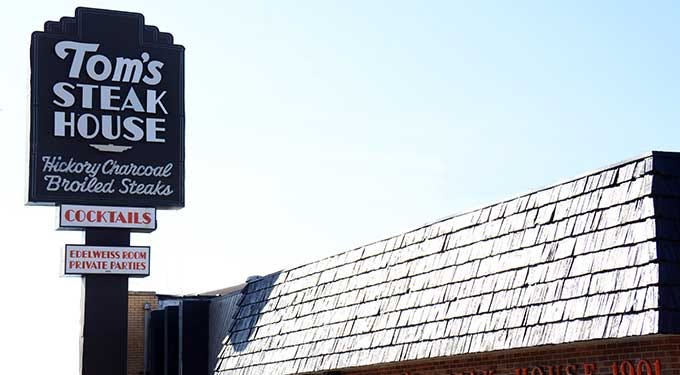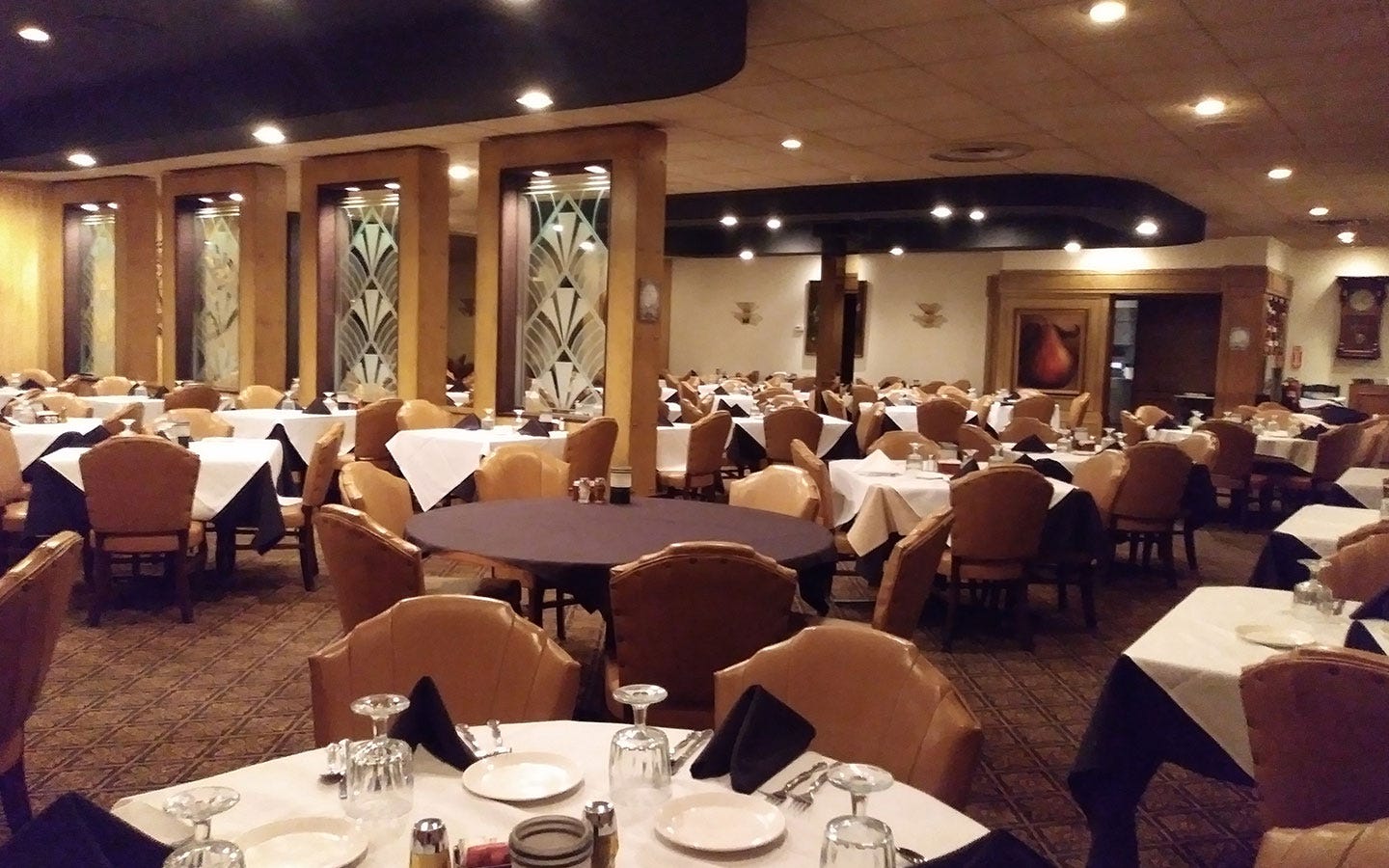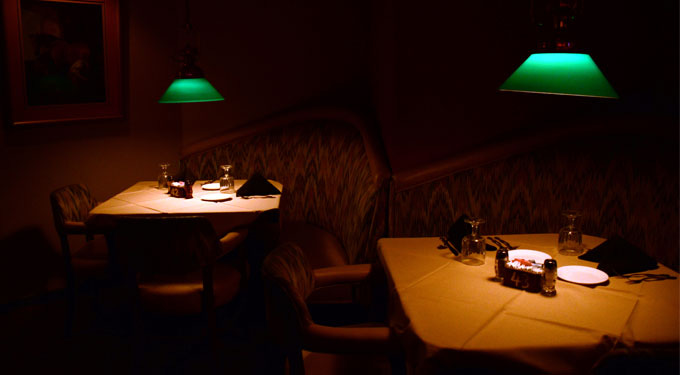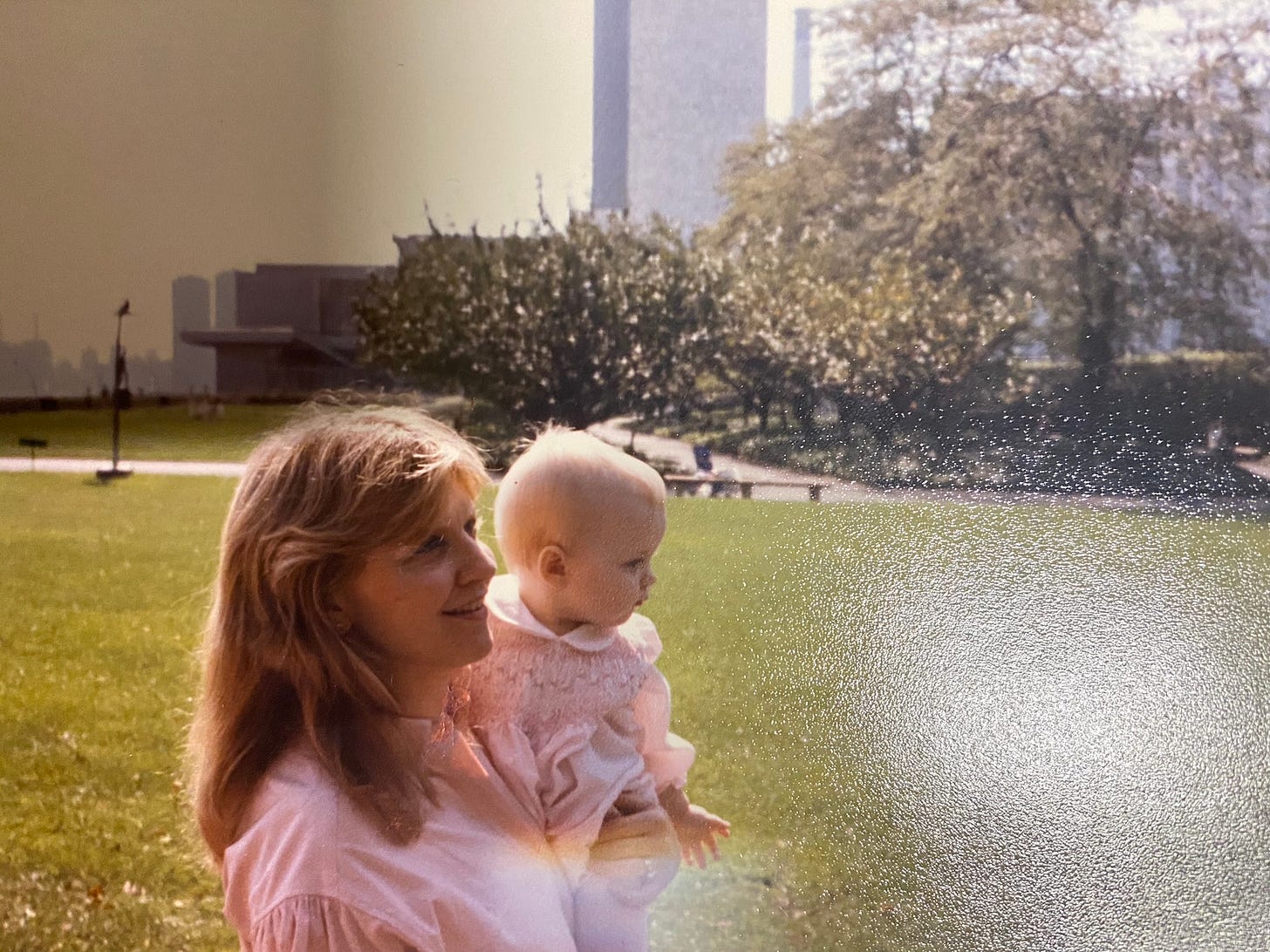Welcome to Not Knowing How: Adoration Revisited, a capsule newsletter by Lisa Locascio Nighthawk in sixteen parts. Names have been changed. The version of events is my own.
I can't go on, digging roses from your grave
To linger on, beyond the beyond
Where the willows weep
And whirlpools sleep, you'll find me
Before I lost my mother I thought I would die if she died. But I didn’t.
I was asleep in a hotel near the hospital. The phone rang, waking me up. It was five in the morning. “Your mom’s at peace,” said my dad, who had spent the night in her hospital room. Then my boyfriend and I were gathering our clothes to walk to Northwestern in the freezing cold pre-dawn. My mom was born in Chicago, and now she had died there. Elsewhere in the hospital where she had died, undoubtedly, a baby had been born, a new life was beginning with the new day. This was the first of many thoughts that would later make me cry. But that day I didn’t cry.
When I imagined my mother arriving in the afterlife, what hurt was that she might be lonely, or scared, or confused about where to go. When I imagined who might meet her there—her beloved grandfather, our pets, her parents, the friend who died of AIDS—I felt better. I imagined her stepping gingerly forward into a benign unknown, tentative, curious, wearing her trademark expression of optimistic determined interest. I didn’t want to imagine her consciousness dissolving, as it does in Edith Pearlman’s “Self-Reliance,” but that story is the likeliest description of death I have ever read, so I did imagine it. That is the most painful thing to me, although it has been explained again and again how it is beautiful—the idea, seemingly unavoidable, that the whole narrative of self simply ends.
About a year after she died, I was describing my mom to my friends in a text message. I wrote: “My mom was a surreally powerful figure who healed trauma up and down her family line” and compared her to her chosen icon, the Virgin of Guadalupe. I admired the intensity of the paragraph I had written about her in my text, but no one commented on it, not even after I cut and pasted it into other conversations, trying to provoke a response: Surreally powerful? Really? What do you mean?
The older and more moved-out I got, the more comfort objects my mom cultivated. She had stuffed animals, we both loved stuffed animals, but also more mysterious effects, such as the book light from Borders with which she developed a special relationship. “It just makes me so happy,” she said. She could never entirely explain why, or maybe I didn’t really want to understand, because it embarrassed me that that little twelve-dollar thing made her so calm and pleased. She’d take it out and show it to people who came over for dinner.
With the impotent venom of misplaced focus, I still hate the hapless young woman who worked for the company that managed the apartment building my mom lived in while she underwent chemotherapy, who appeared at the door to my mother’s apartment to chastise her—to chastise me, I was the one who’d done it, because my mom asked me to—for leaving broken-down boxes in the dedicated garbage area on her floor rather than hauling them down to the hellish sub-basement to which they expected their tenants to make a miserable trash pilgrimage.
“Annie?” This woman had the temerity to call out my mother’s name as she knocked at the door. My plan was to ignore her, but my mom answered, bald.
“Annie,” this woman said, and she began to correct her. I went and stood between them. I tried to assert dominance by looming, being aggressively barely polite, but the little engine that could kept choo-choo-chooing up that hill. “You can’t be doing that, Annie.”
“I did it,” I hissed at her. “It was me.” I’d like to think I told her to call my mother Mrs. Locascio. But all I did was finally get her to go away. Then I went out into the hallway, gathered the boxes up in my arms, and carried them into the elevator.
When I returned, cursing the management company employee, my mom said, “I bet it freaked her the fuck out to see me without my wig.”
The roof of my apartment building is the landing pad for many grand ravens. When I was pregnant, we watched them fly twigs to our favorite tree, building secret nests. My husband told me that the the ravens tell each other stories about the family of witches that live in the apartment under the roof they land on. The little witch’s powers are still developing and right now are primarily expressed through his ability to be very cute.
I wanted so much for my mother to send me signs and visit me in dreams. When my psychic teacher told me that ravens were my mother’s message, I believed her. Then I learned that the teacher told another woman in our class that ravens were the sign of her dead mother, and while this could, hypothetically, be true for both of us, it broke my ability to believe in the teacher’s honest intent.
Early in my relationship with my colleague whose mother is also dead, I remarked that I feel jealous when someone talks about their eighty or ninety year old mother. “Oh, me too,” she said, as if we were agreeing about a preferred salad. The ease with which I was understood thrilled me. She was the one who called to tell me I got this job on my thirty-fifth birthday, the day I found out my mom had metastatic cancer. “Grief is asynchronous,” she said during that conversation, which was supposedly about the job.
After my mother died it occurred to me that all songs of romantic longing can double as songs about longing for your dead mother. “Wildflowers” by Tom Petty is brutal forever now, although I have no evidence she felt any kind of way about it. “Cactus Tree,” a Joni Mitchell song I never heard when my mother was alive, thrusts me into her life before she was my mother, where I clutch my incomplete memories of the memories she shared with me.
At least we enjoyed Court and Spark together. In, I don’t know, 2012, I heard the title track at the end of an episode of Enlightened and posted it on Facebook. She commented: Thank you so much for posting this! I listened to the whole album—it brought back so much—many layered memories—
Worst of all, in the wake of my mother’s death, was my sudden affection for the Train song “Drops of Jupiter,” written after the lead singer’s own mother’s death from cancer. How did I even figure that out? Was I…reading about Train? I listened to the song on repeat, sobbing, smiling through my tears. Maybe some people think it’s embarrassing to like the Smashing Pumpkins, but I queued up “Drops of Jupiter” to feel my feelings. In fact, I’m listening to it right now.
Years later I suffered a similarly inexplicable reaction to “Heat Waves” by Glass Animals, a song that always reminds me of a guy trying to talk you into letting him forgo a condom. But it makes me weep for my dead mother too. I may have, on a given day in the past year, walked around San Francisco listening to “Heat Waves” on repeat through the speakers of my iPhone—not through earbuds or headphones, but broadcast into the common airspace of innocent passerby by a cretin clinging to an irrational marker of inexplicable emotional authenticity. It’s me!
Maybe these embarrassing songs are the signs my mother sends me. Completely emotionally earnest bad jokes and bursts of memory so drenched in detail, so razor sharp, they pale reality.
Tom’s Steak House is a restaurant from another time, set out on a stretch of North Avenue, the street that forms the northern border of my hometown. North Avenue runs from the far western suburb of St. Charles—where once, in 1997, I sat on a lawn, reading Danzy Senna’s Caucasia as I waited for my swim meet event, a moment I’d remember thirteen years later, when I told Senna that I’d loved her book when I was twelve and her face fell and she said, “I’m old enough that you read my book when you were twelve?”—to the shores of Lake Michigan. Tom’s is in Melrose Park, the neighboring town where my sister was born at Gottlieb Hospital, the location of “the track,” where my grandfather’s horses sometimes ran, and an old diner called The Homestead that was demolished to build a brick senior living development.
The first time I went to Tom’s we sat in a dining room thick with white tablecloths, navigated by waitresses in their fifties who pushed metal carts bearing heavy ceramic plates of steaks in jus, baked potatoes with sour cream and green onions (“Sour cream is disgusting,” my mom always said, requesting “Butter only, please”), and a salad tossed with Russian dressing that featured these cheesy, incredibly desiccated croutons for which I would later develop a craving. I was seven or eight years old. I was making noise or just existing as a child in a public space, maybe I was wandering the vast dead dining room, and an elderly woman diner told me off, made me cry. After that we didn’t go to Tom’s again until I was at least ten.
I loved the steaks, which I always ordered medium rare, just like my parents, and the deep ruby jus, in which I liked to submerge my potato. Our family seemed to be the only people we knew who went to Tom’s. The restaurant had an incredible glamor, an eternal inside winter, a hushed dark interior. When I was in high school my parents discovered you could dine in The Paddock, a livelier room with big band music and a oblong green bar at its center. After that we exclusively ate in The Paddock. I had the only Brandy Alexander of my life there, a whipped frozen alcoholic confection in a tall frosted glass that was massive and perfect.
Jeff and I still saw each other around after we broke up. In November 2001 we traveled on a bus with other members of Young Chicago Authors to the University of Wisconsin at Whitewater for a high school writing festival, where Jeff performed a poem about watching the towers fall that referenced “Behold! The Night Mare.” I don’t remember exactly how, but for his poem he borrowed the baroque feeling, the idea of an actual horse “a mythical one; as in the kind that drives through your dreams,” as Billy wrote about the song. He may have spoken the words of the title.
After I went to college, Billy published a book of poetry with FSG, Blinking With Fists. My mom bought it for me. I didn’t read it.
Maybe they’re embarrassing, but at least the Pumpkins belong to me. At least their songs are connected to memories of becoming myself. Eating deep dish from the box while standing at the kitchen counter, having a fight about French homework on the phone with my friend who lived in the house behind the house behind my house. Drinking Crush and eating Sam’s Club microwave popcorn with Moira while her brother watched hockey on the small television in their living room. Coming home from a sleepover so exhausted from staying up all night for the first time that I passed out on the couch in midsentence and my mom said to my dad “I think Lisa’s dead!”
When I hear Billy’s voice I experience again the feeling of my mom recognizing I had my own taste, in my own world of meaning, and she was interested in it.
After the Pumpkins broke up I got into other music, different bands. I saw the Dandy Warhols at least five times in concert. I listened to the Cat Power album You Are Free late at night in my kitchen every night of the summer before I went to college, waiting for Ivan to come over. I loved Veruca Salt, Verbena, The Strokes, Yo La Tengo, Ladytron, Sufjan Stevens, CSS, Crystal Castles, WhoMadeWho, Bat For Lashes, Autre Ne Veut, Beach House, Chrysta Bell, Feist, Joanna Newsom, Kate Bush, Best Coast, Die Antwoord, Chastity Belt, Lana Del Rey, Metronymy, Lia Ices, Timber Timbre, Deap Vally, Ty Segall, Lydia Ainsworth, Emily Ritz, Orville Peck, King Princess, Tamaryn, about whose music I could write a whole other newsletter, and Charley Crockett, whose song “Paint It Blue” gives my grief back to me:
The bright lights shinin’ in the city
Remind me of the time when she was with me
She never heard it, but this song is about me and her.
For a while, I would say that, before she died, I couldn’t imagine surviving my mother’s death. “I thought I would throw myself into the grave with her,” I said.
No one ever knew what to say to this. Whoever I was talking to stayed politely quiet, waiting for me to say something else.
In case it comes up, if someone says to you that they fantasized about leaping into their mother’s open grave, there is an appropriate response. “Grief is asynchronous,” you can say. “You must have loved her very much.”
Thank you for reading! This is the thirteenth of sixteen installments of Adoration Revisited, which will be released every Friday between December 2, 2022 and whenever it’s done. If you enjoy my newsletter, I’d be honored if you share it with your friends. And I’m always interested to hear about your obsessions and memories.









Grateful for your grief playlist, Lisa, and for your words, as always, summoning deeper elements of my own heart-grief-joy. Yes your mom Anne will forever be with you for this life-cycle journey of mystery.